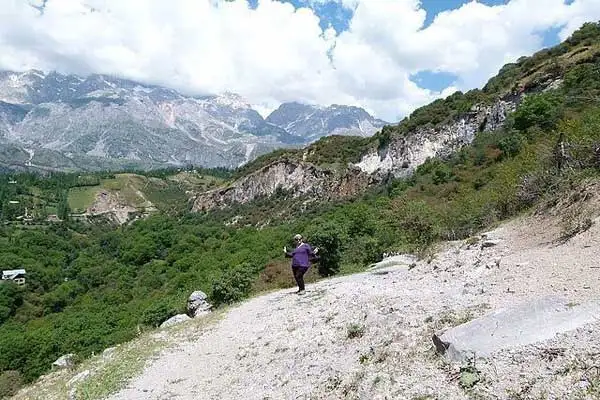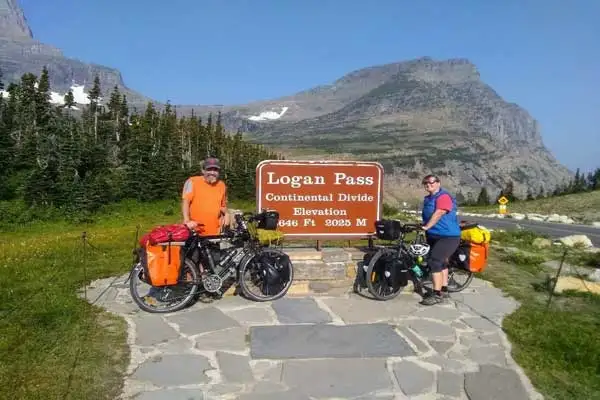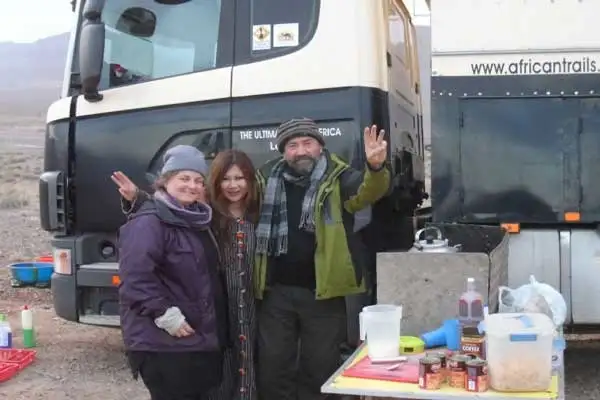One of the things at the forefront of our minds as my husband, Tim, and I travel across the globe is our safety. After all, if you believed the TV and newspapers, just stepping out your front door is fraught with danger, let alone traveling through many countries around the world. And yet after traveling to over 135 countries, including 34 in Africa, much of the Middle East, Central and South America, and almost every country in Southeast Asia, both us—and all our possessions—have survived.
We’ve wandered dozens of major cities in developing countries and visited many of the poorest countries in the world. We’ve skydived, scuba-dived, trekked at altitude in sub-zero temperatures, climbed to the rim of volcanoes in one of the hottest places on earth, and sailed a yacht across open seas for days on end.

We’ve never been mugged, we’ve never had anything stolen, and while we’ve been sick occasionally, neither of us has been in mortal danger. And while some of our adventures have certainly raised our adrenaline levels because safety standards and driving skills are way different to those at home, the calculated risks we’ve taken have been 110% worth it for the memories we’ve gained. So, when people ask us is if a roving retirement is safe, we’re happy to respond with a resounding yes...but with a few caveats.
When we think of danger, we don’t just consider violent crime. We take a holistic view of our health and safety. As well as the potential for violence, there’s also petty crime—snatch and grab, pickpockets etc.,—unsanitary conditions, natural disasters, unsafe practices, and civil unrest.
The key to us having stayed safe all these years is ensuring that we become and remain aware of the level of risk for each of these aspects and a willingness to change our behavior if necessary. There are certain things we do, no matter where we are in the world. And most of it’s not rocket science.
For example, we don’t walk around in notoriously bad or deserted areas, especially at night. It might cost a couple of bucks extra, but we’ll take a cab back to our accommodation if we feel it’s not safe to walk.
We rely on our instincts as to whether we store valuables and important documents like passports in our accommodation when we go out or take them with us. Unless we’re in the room, all valuables like computers get put out of sight and if there’s a safe, we’ll use it.
Except for my wedding ring, I rarely wear jewelry. And when I do it’s not particularly flashy or expensive and not really worth stealing. I rarely carry a handbag and when I do it never has much worth stealing in it. I carry it across my body and tucked close to my torso, on the side least exposed to a busy street or a crowd of people.
Tim and I always watch each other’s back. In areas where pickpockets and bag snatchers are common, we keep the majority of our money and bank cards in a money belt under our clothes. For day-to-day cash, I usually use a neck pouch. It slips down my top and besides being out of sight, it also stops me from leaving it places or losing it. Tim has a zippered pocket in his pants. It’s never happened, but if someone did try to rob us, we’d happily hand over the contents of that neck pouch and pocket to avoid a violent confrontation.
We keep phones and cameras out of sight in a daypack secured with a carabiner or a fastened pocket unless in use and we’re on alert for anyone wanting to get too close in a crowd. If the camera is in Tim’s daypack, I’ll walk slightly behind him and change my direction every so often to confuse anyone thinking of making a go for it. If the camera is out, it’s always around one of our necks or across our bodies and held by at least one hand. One of us is always aware of who’s around when the other is taking pictures.

We love to go out for a couple of drinks and soak up the atmosphere of a place at night, but we don’t overindulge unless we’re with people we trust. We usually only take enough cash for the night, plus a credit card as back up. Unless, that is, we have doubts about the security of our accommodation, then we’ll be even more cautious while we’re out on the town.
We are not paranoid about germs, but we do take precautions. Washing our hands before eating. Avoiding tap water and ice (and salads) where there’s a chance of water-borne contamination and using our observation skills when choosing a place to eat. I have a “toilet index” that says if the bathroom is clean so will the kitchen be. But in saying that, we love street food and are happy to sit down with the locals provided the place is busy and the food is turning over and not sitting around going bad.
We don’t like the cold, so we usually choose warmer countries or travel in summer. Keeping hydrated is probably the most critical thing for staying healthy, so we make sure we always have a water bottle with us. We carry a small medical kit with hydration salts, medication for stomach problems, and ALWAYS take out travel insurance in case we need treatment in a medical facility.
When deciding whether we’re going to visit a destination, we read travel advisories, but we also monitor the news. If there are warnings about a place, we’ll try and contact people who’ve just been there or are on the ground to see what the situation is really like. More than once, the cause of the advisory is contained to a small part of a country and the rest is perfectly safe to travel within.
If we travel to a place where we think there’s a chance of a major natural disaster or other problems escalating, we register our presence in a destination, sign up for emergency alerts, and keep abreast of the situation on the news. If things look dangerous, we change our route and plans. We have the flexibility to return next year when the conditions are better and nicer. Why risk our health and safety through sheer bloody-mindedness?
We like to travel by ourselves because it gives us more flexibility, but the majority of the time we travelled in Africa it’s been with a group of people on an overland truck where we’ve camped and self-catered. The security of a group, the fact we don’t have to rely on the unsafe and inconvenient public transport system, and the greater control over the hygiene of our food far outweighs our preference for traveling independently.

Tim and I on our Moroccan adventure.
But most important of all is our belief in our gut instinct. If something doesn’t feel right, we’ll give it a miss. Maybe things would turn out okay. We’ll never know. But if something did happen, we’d be kicking ourselves…or worse.
After all these years—and miles—we’ve concluded that the vast majority of people are honest and are happy to see you visiting and enjoying their country. If we travel around scared of what might happen, we’ll miss out on too many incredible experiences and be left wondering “what if?”. So we prefer to take sensible precautions and calculated risks based on the best possible information we can gather. So far, our roving retirement has been a blast. And we wouldn’t have life any other way.
Related Articles
10 Ways to Make Money Online in Retirement
